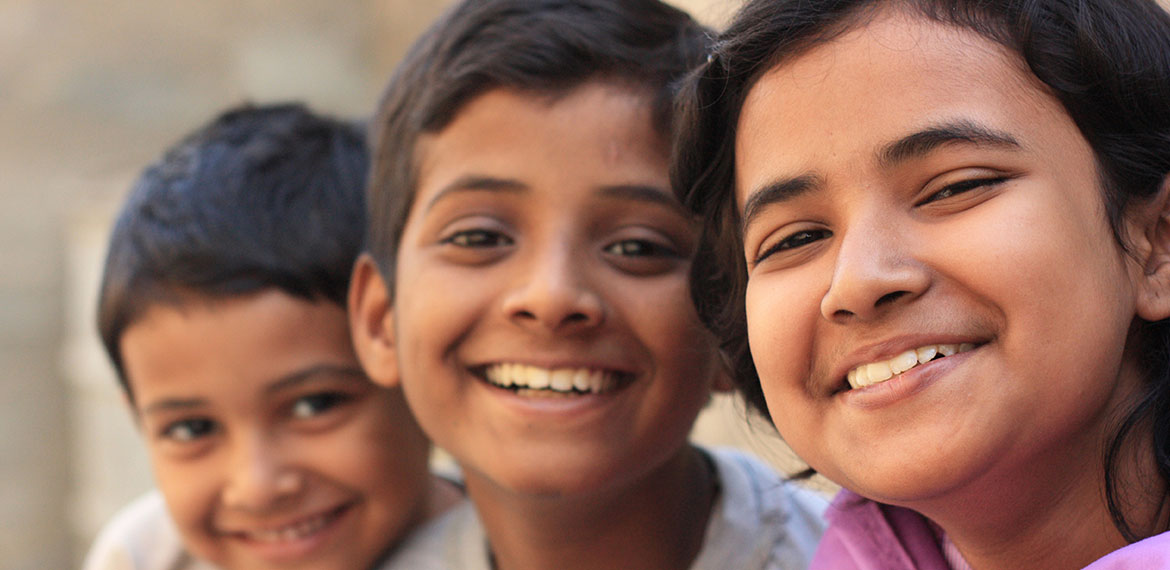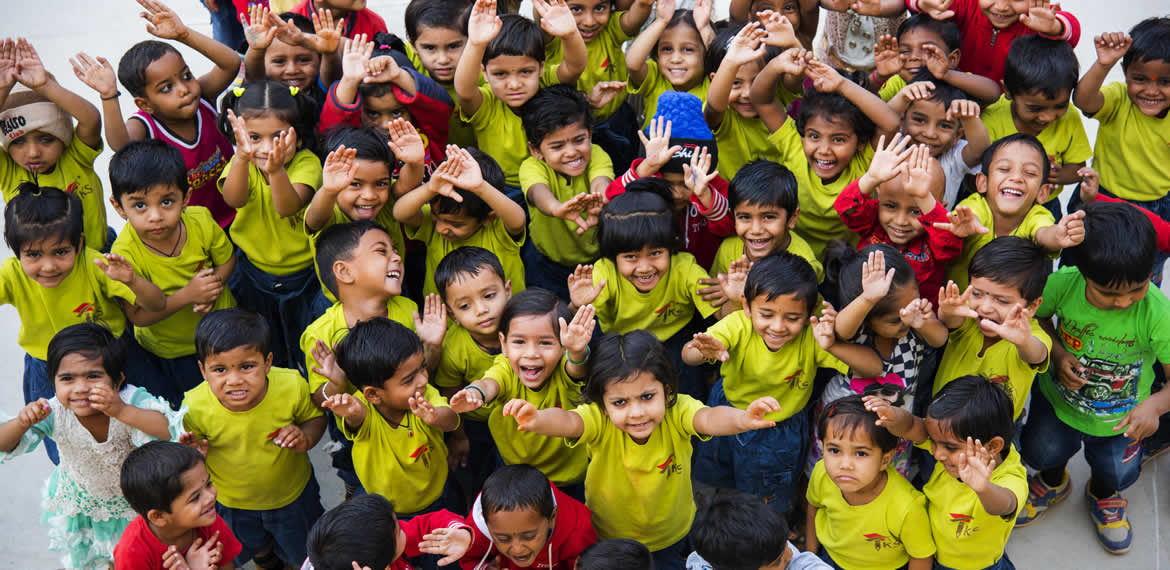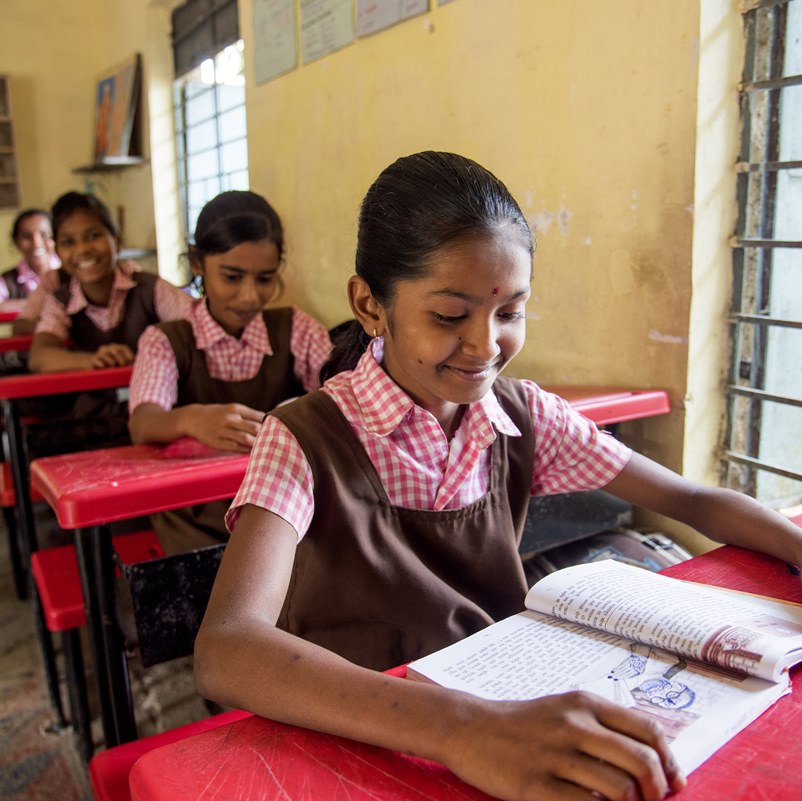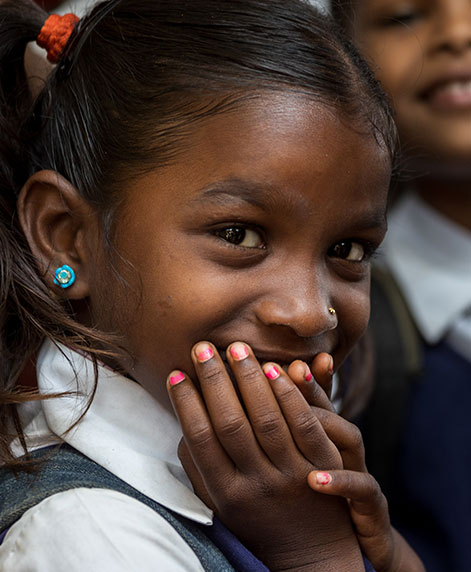SBC3 (Centre for Social and Behaviour Change Communication) brings together a team of passionate managers and leaders with diverse skill-sets to drive social and behaviour change through evidence-based communication strategies.
vision

The Purpose of SBC3
We aspire to unleash the productive and creative energies of India’s youth and help them become significant contributors to our Nation’s progress by :
-
Empowering them to be mentally healthy, emotionally strong and become a vibrant community of youth
-
Reducing their vulnerabilities to abuse.
-
Catalysing and facilitating transformational behaviour in relation to health, people, community, and environment.
-
Providing them with a platform to seek information and knowledge on subjects that are important to them during their adolescence and teenage.
mission

Over a period of five years, we aim to reach out, sensitize, empower and enhance the lives of youth with our programs by building a modern sustainable organization and taking a leadership position in use of SBCC (Social and Behaviour Change Communication) methods.

Our Goals
-
We expect our programs to cover 10 lac children/youth, up to 19 years of age, at 2100 schools across 10 major cities over a 5 year period, with the help of 14 local social partners.
-
We expect to further reach half a million youth via our dedicated Portal during the period.
-
We will publish White Papers on topics like Adolescent stress and depression, Parenting Styles, Issues of Teenagers in India, SBCC methods in addressing youth issues.
-
Build a professional team of Counsellors, Psychologists, Communication experts and Professionals trained in SBCC methods.
Our Programs

-
-
Energetix: helping adolescent’s ability to cope with stress/pressure
-
Sensitive Parental Guidance(SPG): Guidance to strengthen Parenting skills and make parenting of adolescents a rewarding experience.
-
AskBuddy.org: A dedicated and safe web Portal for all issues of teenagers
-
Buddyapp: a Mobile App. with wearable band to help address teenage depression.
-
Generation Next– Protection from Abuse to Stay Safe (GNX-PASS): sensitising children from 3 to 16 years on sexual abuse, Personal Safety and safe Online behaviour.
-
School is the Change: providing a platform for school children to influence community on Social Issues.
-

Impact
Children covered by our programs will:
-
Display significant and measurably reduced levels of stress/depression and anxiety.
-
Demonstrate measurable levels of knowledge on Personal Safety Standards.
-
Offer measurable levels of change in behaviour patterns.
Why

42% of India’s population are children below 18. The value of this youth to the nation is enhanced if we can unleash their creative energies and enhance their productive energies. For a population of this size, India remains well behind in scientific discoveries, patents, great Art, and Sport. Combination of various factors has bridled our youth.
- Of the world’s adolescents, a quarter (245 million) are in India.
- WHO estimates indicate that India has the world’s highest rate of suicides. A third of suicides in India are of people between 15 and 29.
- NCRB estimates that one student commits suicide every hour in India.
- Maharashtra and Tamil Nadu, two of our most developed states, have the highest rates of student suicides.
- As per WHO, one in four children (25%) between 13 and 15 suffer from Depression and an additional 11% were distracted from finding it hard to focus on studying.
- Recent studies in Mumbai estimated an alarming 60% of teenagers as being depressed and prone to high levels of anxiety.
- India spends an abysmal 0.06% of the Health budget on Mental Health- even lower than Bangladesh- and we have an 87% shortage of mental health professionals – only 3 psychiatrists per million people.
- Most of our Universities and schools do not have Counselling Centres.
- A Government study of 2004-7 found that one in two children (53%) in India were sexually abused by the age of 10, irrespective of gender.
- Academic pressure, Peer pressure, a rapid growth of digital social media and poor parenting- all impact the mental health of India’s adolescents.
There is not a single digital platform/Portal addressing the needs /issues of teenagers.
Strategies & Priorities

- Conduct extensive Social Behaviour Research with assistance of our formidable Advisory Council
- Develop evidence based programs using SBCC methods.
- Achieve transformational behaviour in our target audience.
- Leverage digital technologies to achieve scale beyond our direct contact programs.
- Develop a network of SBCC trained Social partners and build their capacities.
- Work with Schools and Colleges as the primary partners to achieve change.

SBC3 Promise
-
To our core target group of children, our Commitment is:
-
To be sincere and trustworthy of their confidence
-
To be Committed to assisting them without being judgemental.
-
To ensure, in our interactions with them, the highest standards of safe protection protocols
-
To keep them protected whilst they are on our portals or use our applications.
To assure them that their best interest will be our only driving principle.
-
Funding Model

Our Funding model will consist of the following:
-
Ear-Marked Program Funding: from
-
Grant funding institutions
-
Corporate supported funding : Payroll giving
-
Corporate CSR
-
Online Crowd Sourcing.
-
Program sponsorship with co-branding.
-
-
General (non ear-marked) Funds: from
-
Institutional and Transactional models including optional donation on checkout/billing
-
General donations
-
Organisational development and essential establishment costs: From Corpus Fund donations and General donations.
Culture and Values

The organizational culture and core values of SBC3:
-
Caring and Empathic attitude across the organization.
-
Gender equity at the workplace and equal representation of women at all levels.
-
Socio-cultural equity. To ensure staff represents the ethnic and religious diversity of the nation. No bias of any kind towards any group.
-
SMART Goal based KRAs and fair evaluation process for all staff.
-
Highest ethical standards.
-
Complete fiscal transparency including uploads of complete Audited Financial reports to the website with full public access.
Compliance with highest standards of Corporate Governance standards as defined by our illustrious Governing board
Sexual Exploitation and Abuse Policy
- Sexual exploitation and abuse by SBC3 employees, staff, and volunteers constitute acts of gross misconduct and are therefore grounds for termination of employment.
- Sexual activity with children (persons under the age of 18) is prohibited regardless of the age of majority or age of consent locally. A mistaken belief regarding the age of a child is not a defense.
- Exchange of money, employment, goods, or services for sex, including sexual favors or other forms of humiliating, degrading, or exploitative behavior is prohibited. This includes the exchange of assistance that is due to beneficiaries.
- Any sexual relationship between those engaged with community/government staff/children as part of the work assigned to them and protection and a person benefiting from such engagement and protection that involves improper use of rank or position is prohibited. Such relationships undermine the credibility and integrity of humanitarian aid work.
- Where an SBC3 employee, staff, or volunteer develops concerns or suspicions regarding sexual abuse or exploitation by a fellow worker, whether in the same agency or not, he or she must report such concerns via established agency reporting mechanisms.
- SBC3 employees, staff, and volunteers are obliged to create and maintain an environment that prevents sexual exploitation and abuse and promotes the implementation of their code of conduct. Managers at all levels have particular responsibilities to support and develop systems which maintain this environment.
SBC3 Governance Structure
SBC3 is a Section 8 (1) Public Limited Company registered under the Companies Act 2013.
Section 8(1) licence number: 109927
CIN: U74999MH2017NPL28994
Governing Board (GB)
Members are invited by the Board of Directors to join the Governing Board. The GB has the key responsibilities of:
- Direction setting and review
- Governance standards and practices
- Goal and performance review
- Support and linkages
- Organisation Strategy


Advisory Council (AC)
The Advisory Council Members are invited by the Board of Directors. These are well known and experienced professionals from various fields. The AC has been conceived not so much as a body but as a team of individual experts who are called upon to help in building solutions to specific programmes or provide guidance on specific subjects.

Key Members
While the governance structure provides guidance and advice, promoters and key team members drive the execution of our programmes.
Associations
These organisations are associated with some of our Advisory Council Members. They are our first choice for assistance in developing solutions that need specific expertise.


